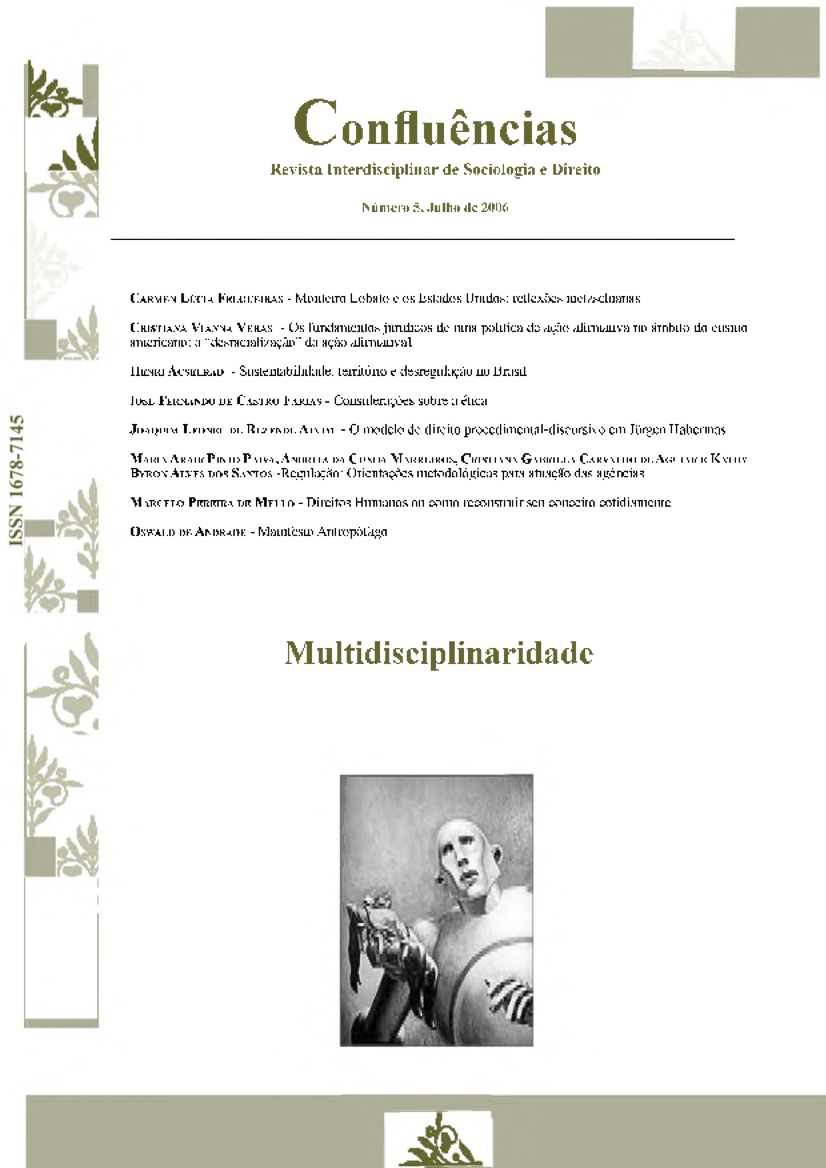Monteiro Lobato e os Estados Unidos: Reflexões nitzschianas
DOI:
https://doi.org/10.22409/conflu5i1.p94Abstract
This article intends to discuss a conception of North-American society, formulated atthe beginning o f the twentieth century, but extremely present-day because of the enormous
and permanent influence o f its formulator, Monteiro Lobato, a Brazilian author and essayist, who has written a vast literature for children and adults. Here I intended to show that the risks of an utopia becoming “totalitarians fictions”, as José Saramago advised in the last World Social Forum, was very well understood by Lobato when he looked at the paradox that is to base oneself in Nietzsche and to accept a model of society as something desirable. The opportunity of this return to Lobato is the possibility of reflection about our ambivalent relationship with “America” that sometimes appears as a desirable objects, sometimes as something that we should deny.
Downloads
Download data is not yet available.
Downloads
Published
2006-07-28
How to Cite
Felgueiras, C. L. (2006). Monteiro Lobato e os Estados Unidos: Reflexões nitzschianas. Confluências | Interdisciplinary Review of Sociology and Law, 5(1), 02-11. https://doi.org/10.22409/conflu5i1.p94
Issue
Section
Artigos
License
The authors hold the copyright, with first publication rights granted to the journal, being the work simultaneously licensed under the Creative Commons Attribution Licence, which allows the work to be shared with acknowledgement of authorship and first publication in this journal.
The authors have authorization to separately purchase additional contracts of non-exclusive distribution of the work's version published in this journal (e.g.:publication in institutional repositories or as a book chapter), with acknowledgment of authorship and first publication in this journal.
The authors have permission and are encouraged to publish and disseminate their work online (e.g.:in institutional repositories or on their personal page), at any point - either before or during the editorial process, since it may generate productive changes, as well as increase the impact and citation of the published work.







